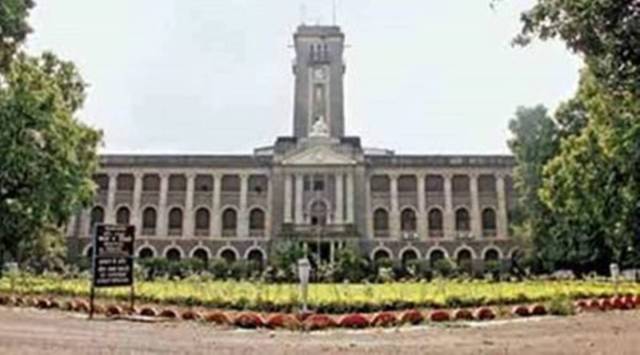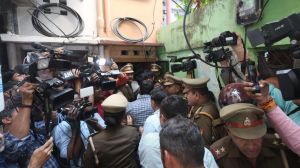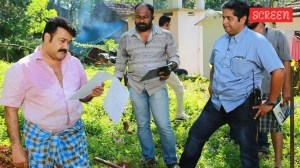U20 City Sherpa meeting | Ahmedabad moving towards a zero waste system: Civic body chief
The commissioner, who had proposed the introduction of the Environment Improvement Charge (EIC) in his budget, stated that the segregation process has been intensified for a zero waste system.
 The minister stressed that ensuring water security through better planning, policies and governance is critical in the context of rapid urbanisation. (File)
The minister stressed that ensuring water security through better planning, policies and governance is critical in the context of rapid urbanisation. (File)Ahmedabad gets 10 per cent of its electricity from renewable sources and the city is moving towards a zero waste system, Ahmedabad Municipal Commissioner M Thennarasan stated on the second day U20 City Sherpa meeting held in the city Friday.
The commissioner, who had proposed the introduction of the Environment Improvement Charge (EIC) in his budget, stated that the segregation process has been intensified for a zero waste system. “There are compost making, plastic recycling plants. Water is recycled. Recycled water is used for industries and trees. Outreach programmes for environmentally friendly behaviour are conducted, including reaching out to school children,” an official statement issued by the AMC quoted him as saying at the closing ceremony of the two-day summit.
Responding to a question on the flood problem, Thennarasan said Ahmedabad, a semi-tropical area, witnesses two to three days of excess rainfall due to effects, including La-Nino, in a year resulting in five to six hours of water logging. “70 per cent of cities have a drainage system. Also, lakes and ponds have been created for rainwater drainage,” he added.
Further, he said 600 vehicles, involved in door-to-door collection of wastes, are equipped with GPS. “The waste is taken to the dumping site after segregation. Maximum amount of collected waste gets recycled,” he added.
“Steered by India and ‘Chair city’ Ahmedabad, I am convinced that this year’s Urban 20 Engagement Group will demonstrate that policies and practices adopted by cities indeed have powerful implications on global agendas of development. It shall further underscore the interconnectedness of the world’s future, and the crucial role cities will play in economic prosperity”, said Union Minister for Housing and Urban Affairs and Petroleum and Natural Gas, Hardeep S Puri, in an audio-visual message, elaborated on how India has increasingly led discourse and action on important issues of global governance in the last few years. The transformational story of India’s urban rejuvenation since 2014 is one such example that has become a blueprint for other countries to learn from, particularly in the global south, he added.
The minister stressed that ensuring water security through better planning, policies and governance is critical in the context of rapid urbanisation. “I am certain that this will be an area where considerable knowledge will be produced and shared in this year’s summit.”, he said.
Amitabh Kant, India’s G20 Sherpa, gave a clarion call to all delegates to act as brand ambassadors of India’s G20 presidency and carry the message of de-globalising, de-carbonising and digitising cities.
Over 20 international cities took part in the open floor discussion during the two-day summit.







